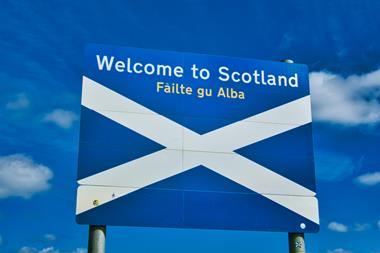The government’s attempt to downgrade drive-off crimes has been picked up by the Association of Convenience Stores, which is fighting on retailers’ behalf for the Home Office to reverse its new policy.
Since new guidelines were issued in April this year, which appear to reduce the crime status of drive-offs, some victims of drive-offs have met a brick wall when trying to report an offence to the police.
One retailer told Forecourt Trader: “I have just been on the receiving end of the new Home Office directive to police forces regarding bilkings, and it now seems that before the police are willing to get involved with drive offs, we have to prove intent.
“It seems to me that this smacks of massaging the figures. The police cannot deal with forecourt crime and so they do not want to record an incident that will go down as another unsolved crime. I have been advised to write to the DVLA with the registration numbers in order to get vehicle owner details. I must then write to the owner and ask for payment. If payment is not forthcoming, only then, apparently, will the police get involved.”
Cambridgeshire independent Jonathan James also said: “I find it preposterous that we go from making drive-offs an arrestable offence in October 2003 to basically decriminalising drive-offs. It’s just an indication that they [the Home Office] are doing everything they can to massage the crime figures to suit their own needs. And we the retailers are left to pick up the pieces.
“As an industry we must make every effort to ensure that the guidelines don’t get into the public domain and raise awareness that now you can do a bilking and get away with it.”
According to the new guidelines, only in circumstances where the vehicle involved is stolen; or there is evidence of previous drive-offs having been committed; or there is some form of aggravating circumstances (such as violence), should a crime be reported.
But in a meeting with Home Office Minister Hazel Blears, ACS chief executive David Rae has called upon the Minister to reverse this change of crime-recording policy.
“One of the reasons I was so keen to meet with Hazel Blears was to clarify why her department, which has a strong record in tackling retail crime, decided upon such a counter-productive policy shift,” said Rae. “The Minister understood the concerns raised and we now await a decision on this policy.”
The ACS also requested that theft of fuel be brought into line with other shop-theft crimes. “I challenged the Minister to go further in providing powers to tackle drive-off crime.
“We believe that a good start would be to treat the theft of
fuel the same as any other shop theft. The Minister recently gave police the power to issue a fixed penalty notice (FPN) to first-time thieves; this should apply equally to fuel theft.”
The ACS proposal is that a fixed penalty notice could be
used in the same way as the current FPN for shop theft,
and in particular with the following exceptions: where the theft is a first-time offence; where there is full restitution of the amount stolen; or where the value of the theft involved does not exceed £100.
Rae added: “I made it clear to the Minister that the ACS believes that introducing fixed penalty notices for fuel theft was an additional tool and not a complete solution to the problem.
“It would be a positive development for two reasons. Firstly to provide a simpler option for the police to punish first-time offenders and therefore increase the number of drive-offs that are actually dealt with. Secondly, this policy would undermine the false distinction that is often drawn between the theft of fuel and the theft of any other shop product.”
But those who question the fixed penalty notice’s effectiveness to deal with shop theft, also strongly oppose the use of FPNs to punish those that commit drive-off offences. Jonathan James said: “No way should bilkings be dealt with by a fixed penalty notice. Thiefs needs to be made to feel like criminal by being arrested.”
While the ACS is lobbying for the new drive-off recording policy change to be revoked, the British Oil Security Syndicate (BOSS) has met with the Home Office’s National Crime Recording Standards (NCRS) to discuss what it perceives as a misinterpretation of the guidelines by some police forces.
As a result of that meeting, the NCRS has issued police forces with further guidance to clarify any confusion over the way in which reports of drive-offs should be treated.
“It appears that the guidance has been interpreted in some places to mean that the police do not respond at all to such reports [of drive-offs],” said the NCRS’s letter to police forces.
“This was clearly not the original intention of this change to the Counting Rules, and we need to be careful that officers are carrying out at least a minimum standard of investigation before determining whether or not a crime should be recorded.”
The letter states that the intention of the policy change was to reduce the time spent investigating incidents where, “on the balance of probability, criminal intent was the less likely causation factor”.
Work to improve the guidance is being progressed through the National Crime Recording Steering Group, and BOSS executive director Kevin Eastwood is hopeful of further guidelines being issued in September or October.
He said: “The new additional guidelines should alleviate the situation and, used correctly, in conjunction with Forecourt Watch partnership schemes, police forces can take positive steps to tackle the issue of making off without payment at service stations.”

































No comments yet